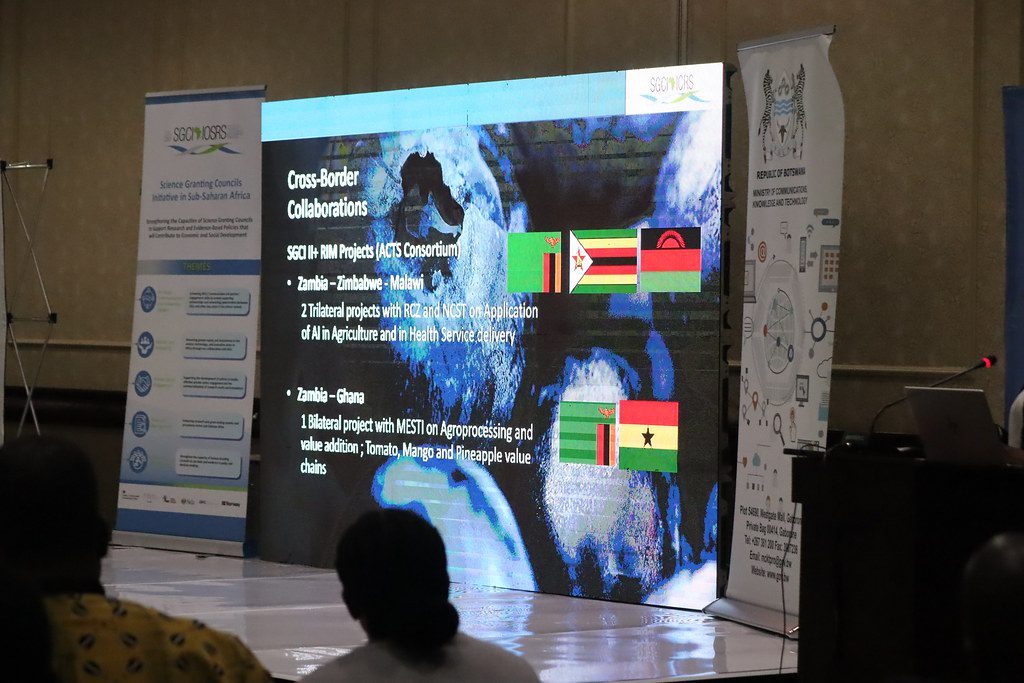SGCI News
African scientists have been conducting cutting-edge research to tackle the continent’s challenges but need to improve engagement with policymakers to make an impact. In a virtual workshop on 23 April,…
African scientists have been conducting cutting-edge research to tackle the continent’s challenges but need to improve engagement with policymakers to make an impact.
In a virtual workshop on 23 April, researchers from diverse fields, including agriculture, health, education, and energy, gathered to learn how to transform their scientific findings into persuasive policy briefs that can drive meaningful change in society.
Most participants (64 per cent) had never written a policy brief before, highlighting the need for such training.
Led by Dr. Charles Wendo, science communication training coordinator for CABI/SciDev.Net, the session focused on practical strategies for communicating research to policymakers in ways that can lead to concrete action.
“Policymakers make decisions that affect the broader society,” Dr. Wendo explained.
“Convincing them to take specific actions based on your findings can enhance the societal impact of your research.”
“If your brief isn’t understood, your recommendations won’t be taken up,” Dr. Wendo emphasised during the interactive Zoom session.
SciDev.Net delivered the training as a Collaborating Technical Agency (CTA) of the Science Granting Councils Initiative (SGCI).
Strategies of an effective policy brief
The training covered the essential strategies of effective policy briefs, including creating compelling titles, writing concise executive summaries, and clearly stating societal problems.
He adds that other strategies include simplifying research findings with accessible language and visuals, proposing specific, actionable recommendations, and crafting memorable conclusions.
“You make the conclusions compelling by stating what is at stake if no action is taken.”
Dr. Wendo advised keeping briefs between two and four pages, saying that shorter documents are generally more effective for senior officials.
“The reality is that many people do not have time to read long documents, especially the higher-level policymakers. So, I would recommend a one-page policy brief for them.”
He adds that policymakers with a technical background would appreciate a more detailed policy brief because they are more likely to look deeper into the scientific evidence and implications.
“So it is okay to write for them longer policy briefs of five to eight pages.”
Dr. Wendo stressed that the primary purpose of policy briefs is to persuade policymakers to take a specific action based on evidence rather than merely summarising research.
Mentorship
Participants were assigned homework to create their own two to three-page policy briefs.
Following submission, mentorship will be provided by Dr. Abiodun Egbetokun, a visiting research scholar with the Human Sciences Research Council (HSRC) of South Africa.
Dr. Egbetokun is also the head of research student training at De Montfort University in the United Kingdom. He will help researchers refine their policy briefs.
“This is mentorship support, not doing the work for you,” Dr. Egbetokun clarified.
“You still have to do the heavy lifting and apply what you have learned today.”
The training is part of SGCI’s broader effort to build the capacity of African Science Granting Councils and researchers to advocate for the uptake of scientific research and innovation by policymakers, the business community, and the public.
This article was written by Jackie Opara
Please check out more stories and let us know what you think. We would love to hear from you!
Let’s continue the conversation on our social media
Follow us on LinkedIn
Related News
How Zambia’s science council is funding research that matters
When Zambia’s National Science and Technology Council (NSTC) was established in 1997, its founding vision was to harness science, technology, and innovation to improve the lives of ordinary Zambians. More than two decades later, that vision is increasingly taking shape through a growing portfolio of…
Voices of SGCI: Council leaders on the direction and ambition of SGCI 3
At the African Union’s Science, Technology and Innovation Week in Addis Ababa, earlier this month, leaders of science granting councils reflected on what SGCI Phase 3 represents for Africa’s science and innovation systems. From ownership and alignment to stewardship and sustainability, here are their voices…
Building Africa’s science future: inside the SGCI alliance
As Phase 3 of the Science Granting Councils Initiative launches on the margins of the African Union Summit in Addis Ababa last week, the SGCI Alliance Chair explains why this moment marks a decisive turning point for African science. Cephas Adjei Mensah describes what is…
SGCI funded projects
Rwanda’s integrated approach to sustainable agriculture and nutrition
Project Titles & Institution Areas of Research Number of Projects being funded Project Duration Grant Amount In-Kind Distribution Council Collaboration with other councils





